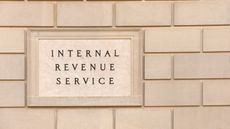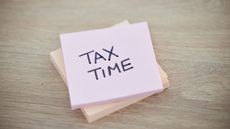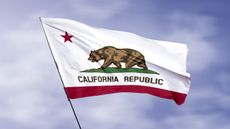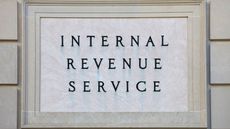North Carolina State Tax Guide
State tax rates and rules for income, sales, property, fuel, cigarette, and other taxes that impact North Carolina residents.
- (opens in new tab)
- (opens in new tab)
- (opens in new tab)
- Newsletter sign up Newsletter

Bottom Line
Middle-Class Families: Mixed Tax Picture (Go to the Kiplinger Tax Map for Middle-Class Families)
Retirees: Mixed Tax Picture (Go to the Kiplinger Tax Map for Retirees)
With a flat 4.99% rate for the 2022 tax year, a lot of taxpayers in the Tar Heel State pay income taxes at a higher-than-average rate (but rates are going down further in the coming years).

Sign up for Kiplinger’s Free E-Newsletters
Profit and prosper with the best of expert advice on investing, taxes, retirement, personal finance and more - straight to your e-mail.
Profit and prosper with the best of expert advice - straight to your e-mail.
Sales taxes in the state are close to the national average. But, while the state doesn't tax groceries, localities do.
Property taxes are on the low end, too. Plus, there are no estate or inheritance taxes in North Carolina, either. When you add it all up, North Carolina's overall tax burden is generally in the middle when compared to other states.
North Carolina Income Taxes
North Carolina Income Tax Range
For 2022, North Carolina has a flat rate of 4.99% of state taxable income. However, the rate is decreased to 4.75% for 2023, 4.6% for 2024, 4.5% for 2025, 4.25% for 2026, and 3.99% for 2027 and thereafter.
North Carolina Taxation of Social Security Benefits
Social Security benefits are not taxed by the state.
North Carolina Tax Breaks for Other Retirement Income
Income from federal government retirement plans, or designated North Carolina state and local government retirement plans, is exempt if the retiree had five or more years of creditable service as of August 12, 1989. This exemption is known as the "Bailey exemption."
Military pensions are exempt if the retired veteran (1) served at least 20 years, or (2) is medically retired. This exemption doesn't apply to severance pay received due to separation from the U.S. armed forces.
Railroad Retirement benefits are also exempt.
North Carolina Sales Tax
4.75% state levy. Localities can add as much as 2.75%, and the average combined rate is 6.98%, according to the Tax Foundation.
- Groceries: Exempt from state tax, but 2% local tax may apply
- Clothing: Taxable
- Motor Vehicles: Exempt from ordinary sales tax, but taxable under special 3% highway-use tax
- Prescription Drugs: Exempt
North Carolina Real Property Taxes
In North Carolina, the median property tax rate is $704 per $100,000 of assessed home value.
North Carolina Property Tax Breaks for Retirees
To qualify for the 2022 Elderly or Disabled Exclusion, a homeowner must be at least 65 years old or totally and permanently disabled, with income of no more than $31,900 in 2021. The program excludes the first $25,000 or 50% of the home's appraised value, whichever is greater, from taxation.
The 2022 Circuit Breaker Tax Deferment Program limits property taxes to 4% of an owner's income for those 65 years and older who made less than $31,900 in 2021. For those making between $31,901 and $47,850 in 2021, property taxes are limited to 5% of their income. Taxes over the limitation amount are deferred and remain a lien on the property. Homeowners must choose between the programs.
North Carolina Motor Fuel Taxes
Gasoline: 38.75¢ per gallon (40.75¢ per gallon effective January 1, 2023).
Diesel: 38.75¢ per gallon (40.75¢ per gallon effective January 1, 2023).
North Carolina Sin Taxes
Cigarettes: $0.45 per pack
Other tobacco products: 12.8% of the wholesale price (no more than $0.30 per cigar)
Vapor products: $0.05 per ml
Beer: $0.62 per gallon
Wine: $1 per gallon
Liquor: $14.58 per gallon (the liquor tax is an estimate by the Distilled Spirits Council of the United States and published by the Tax Foundation)
North Carolina Estate and Inheritance Taxes
No estate or inheritance tax.
Rocky Mengle was a Senior Tax Editor for Kiplinger from October 2018 to January 2023 with more than 20 years of experience covering federal and state tax developments. Before coming to Kiplinger, Rocky worked for Wolters Kluwer Tax & Accounting, and Kleinrock Publishing, where he provided breaking news and guidance for CPAs, tax attorneys, and other tax professionals. He has also been quoted as an expert by USA Today, Forbes, U.S. News & World Report, Reuters, Accounting Today, and other media outlets. Rocky holds a law degree from the University of Connecticut and a B.A. in History from Salisbury University.
-
-
 IRS Service Improvements Could Bring Faster Tax Refunds
IRS Service Improvements Could Bring Faster Tax RefundsRecent IRS improvements mean taxpayers could see faster tax refunds next year and beyond.
By Katelyn Washington • Published
-
 For Best Tax Savings, Year-Round Tax Planning Is Essential
For Best Tax Savings, Year-Round Tax Planning Is EssentialFor optimal, ongoing tax reduction, consider employing these nine strategies throughout the entire year.
By Andy Leung, Private Wealth Adviser • Published
-
 How to Lower Your Tax Bill Next Year
How to Lower Your Tax Bill Next YearKnowing how to lower your tax bill (pay less taxes) when it's time to file your return next year requires some strategizing through the rest of 2023. Here are some tax tips to help make it happen.
By Katelyn Washington • Published
-
 Indiana Storm Victims Have an Extended IRS Tax Deadline
Indiana Storm Victims Have an Extended IRS Tax DeadlineIndiana taxpayers impacted by recent severe storms have an extension of the April 18 deadline to file federal tax returns.
By Katelyn Washington • Published
-
 IRS Says File Soon for $1.5 Billion in Unclaimed Tax Refunds
IRS Says File Soon for $1.5 Billion in Unclaimed Tax RefundsUnclaimed tax refunds from 2019 are waiting for millions of people who might not know it – but only if they file the pandemic-era tax return soon. Are you one of them?
By Kelley R. Taylor • Published
-
 Tax Tips for Last-Minute Filers
Tax Tips for Last-Minute FilersTime has run out for most people to file taxes for 2022, but these tax tips could help you file soon after the tax deadline and possibly keep more money in your pocket at the same time.
By Katelyn Washington • Published
-
 How to Pay the IRS if You Owe Taxes
How to Pay the IRS if You Owe TaxesThere are several ways to pay the IRS if you owe taxes, but just because you can pay your tax bill over time doesn’t always mean you should.
By Katelyn Washington • Published
-
 Who is Required to File a Tax Return, and Who Isn't
Who is Required to File a Tax Return, and Who Isn'tIf you meet certain income requirements, you are required to file a federal tax return (or get an extension) by Tax Day. You could face penalties if you don't.
By Katelyn Washington • Published
-
 California Tax Deadline Extension: What You Need to Know
California Tax Deadline Extension: What You Need to KnowSome Californians have more time to file federal and state tax returns because of natural disasters.
By Kelley R. Taylor • Published
-
 IRS Says Some Stimulus Check Recipients Should File an Amended Tax Return
IRS Says Some Stimulus Check Recipients Should File an Amended Tax ReturnSome early filers who received state "stimulus" payments may need to file an amended tax return to possibly get a refund.
By Kelley R. Taylor • Last updated









